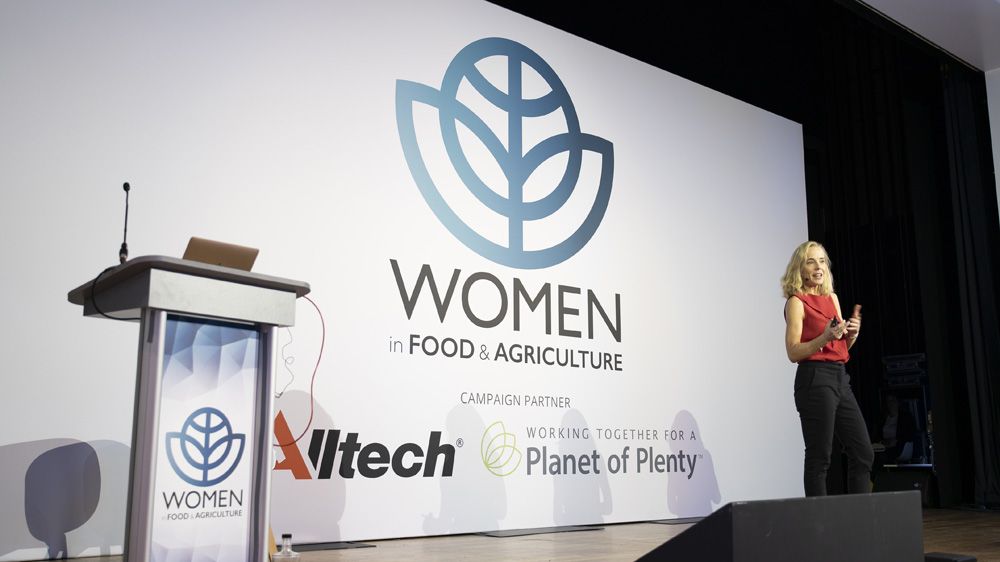“Who here is CEO or has an alternative leadership position in their company?” Karen Karp, founder of consultancy KK&P, asked at the start of her panel, Money Where Our Mouths Are: Female Funding Gaps in Agri-FoodTech, at the first-ever Women in Food & Agriculture Summit in Amsterdam. From the 60 audience members, of which about 90% were women, a mere 10 raised their hands.
Karp attended the two-day summit to present the findings of the recent MWOMA study she released in collaboration with AgFunder and The New Food Economy. The two-day conference geared towards women in the food and agriculture space provided the chance for women to network, compare notes and talk about the risks and opportunities within the food industry.
Karp and her co-panelist Simone Brummelhuis, the founder of the Borski Fund, an investment firm that fully commits to inclusiveness and equal opportunities for women, led the discussion. Topics included the history of ag-tech funding gaps and about strategies to open the channels of capital for female founders
“There is far too little deal flow with women,” Brummelhuis remarked, referring to the number of propositions an investment company receives, adding that if there is a lack of women who offer their company, it is difficult to invest in.
From the audience, Jacqueline Pieters, Rabobank’s global head of food & agri banking, admitted that she has had a hard time investing in women. “I’m that person who has not made investment deals with women. Not because I did not want to, but I have only ever met four women who pitched for investment out of many men.”
What is the reason for this discrepancy in deal flow?
“Women entrepreneurs only start building their relationships with investors once they have thoroughly thought out their ideas, finances, future plans, and goals. The pitch and objectives for the company are, therefore, more realistic. This stage in developing your company is actually already too late. As an entrepreneur, you have to build relationships with your investors in the pre-seed stages,” Karen said.
In a pre-seed investment round, a company normally does not yet have a product, staff or customers. Investors will not stand in line, but you can already build relationships. “These relationships will result in more regular investments at the later stages of developing the company. Men, on the other hand, often start with a half story and say they can build a $100 million business in 10 years, where the woman may say $50 million.”
Karp concluded the session with an assignment for everyone: “Listen to a pitch of a female founder, view the presentation, give feedback, talk to (male and female) colleagues to close that investment gap. Do one thing every single day to support women in the Agri-FoodTech sector to ensure that women get equal opportunities and access to investment funds.”





